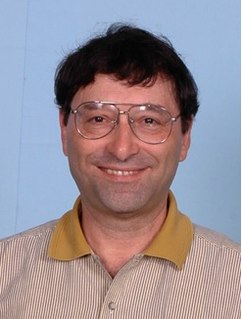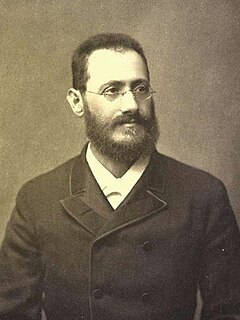 W
WTofig Asgar oglu Abbasguliyev was a lexicographer, scholar of linguistics, and director of the Khazar University Dictionary and Encyclopedia Center.
 W
WJeannine Clementine Theodora Beeken is a Flemish linguist. Her work in Dutch linguistics includes amongst others the development of the first academic software teaching platform for Dutch, esp. Dutch syntax, in the late 1980s, the discovery of three additional objects in contemporary Dutch and the rules for the revised Dutch spelling system, Groene Boekje 2005.
 W
WEliezer Ben‑Yehuda was a Hebrew lexicographer and newspaper editor. He was the driving force behind the revival of the Hebrew language in the modern era.
 W
WNicolas Cleynaerts was a Flemish grammarian and traveler. He was born in Diest, in the Duchy of Brabant.
 W
WAnne Curzan is a professor at the University of Michigan, author of books on language, member of the American Heritage Dictionary Usage Panel, and co-host of That's What They Say on Michigan Radio.
 W
WPetrus Dasypodius was a Swiss humanist. Born in Frauenfeld, he was a teacher and pastor in Zürich from 1527. Due to the Swiss Reformation, he was forced to move back to Frauenfeld in 1530. In 1533, he went to Strasbourg, where he taught Latin at the Carmelite monastery, and later at the Gymnasium Argentinense.
 W
WRajna Dragićević, PhD, is a Serbian linguist, lexicologist and lexicographer. She is a full professor at the Faculty of Philology, the University of Belgrade, Serbia.
 W
WEvangelinos Apostolides Sophocles was a Greek Orthodox monk, professor of classics and Modern Greek at Harvard University, and lexicographer. He was born in Tsangarada, Thessaly, Ottoman Empire, and he died in Cambridge, Massachusetts. He was a fellow of the American Academy of Arts and Sciences and is considered to be a pioneer of Modern Greek studies.
 W
WNayden Gerov, born Nayden Gerov Hadzhidobrevich February 23, 1823, Koprivshtitsa – October 9, 1900, Plovdiv) was a Bulgarian linguist, folklorist, writer and public figure during the Bulgarian National Revival.
 W
WJack Halpern is a Japan-based lexicographer specializing in Chinese characters, namely kanji. He is best known as editor-in-chief of the Kodansha Kanji Learner's Dictionary and as the inventor of the SKIP system for kanji lookup. Halpern is also an active unicyclist, having served as founder and president of the International Unicycling Federation. He currently resides in Saitama, Japan.
 W
WHaricharan Bandopadhayaya was a scholar and lexicographer best known for his 5-volume Bangiya Sabdakosh.
 W
WHamlet Abdulla oglu Isayev is an Azerbaijani mathematician, businessman, graphoman, living founder of Khazar University who served as founding president from April 1991 to September 2010. He is currently the Chairman of the Board of Directors and Trustees, Khazar University ; founder of integrated primary, secondary and high schools ; and founder of a publishing house as well as a translator of poetry, lecturer, and editor.
 W
WTheodore Kavalliotis was a Greek Orthodox priest, teacher and a figure of the Greek Enlightenment. He is also known for having drafted an Aromanian-Greek-Albanian dictionary.
 W
WChristian Janet Kay was Emeritus Professor of English Language and Honorary Professorial Research Fellow in English Language and Linguistics at the University of Glasgow. She was an editor, with her mentor Michael Samuels, of the world's largest and first historical thesaurus, the Historical Thesaurus of English, first published in 2009 as the Historical Thesaurus of the Oxford English Dictionary (HTOED), a project to which she dedicated 40 years.
 W
WReverend Ferdinand Kittel was a priest and indologist with the Basel Mission in south India and worked in Mangalore, Madikeri and Dharwad in Karnataka. He is most famous for his studies of the Kannada language and for producing a Kannada-English dictionary of about 70,000 words in 1894. He also composed numerous Kannada poems.
 W
WAlexander Kohut was a rabbi and orientalist. He belonged to a family of rabbis, the most noted among them being Rabbi Israel Palota, his great-grandfather, Rabbi Amram, and Rabbi Chayyim Kitssee, rabbi in Erza, who was his great-granduncle. The last-named was the author of several rabbinic works.
 W
WSven Lidman, was a Swedish lexicographer living in Stockholm, son of the writer Sven Lidman.
 W
WRonald Stuart McGregor, commonly R. S. McGregor, was a philologist of the Hindi language. Best known as editor of the Oxford Hindi-English Dictionary, a standard reference work published in 1993 after a sustained effort of twenty years, McGregor was a Fellow of Wolfson College and retired as Reader in Hindi at the University of Cambridge.
 W
WFranciscus à Mesgnien Meninski (1623–1698) was the author of a multi-volume Turkish-to-Latin dictionary and grammar of the Turkish language, first published in 1680, which was ground-breaking in its comprehensiveness at the time, and for historians and linguists today it is a valuable reference for the Turkish language of the early modern period.
 W
WHaralampije Polenaković, was a Macedonian literary historian and lexicographer.
 W
WJohann Friedrich von Recke was a senior public official in the Baltic Germans Duchy of Courland. He is remembered now, primarily, for his activities as an antiquarian and collector.
 W
WPushpa Ratna Sagar was a Nepalese merchant, grammarian, lexicographer and pioneer pressman. Born Pushpa Ratna Tuladhar in Asan Dhalasikwa, Kathmandu, he acquired the nickname Sagar in his childhood during a pilgrimage to Ganga Sagar in India. He was the third and youngest son of trader Pushpa Sundar Tuladhar and his wife Dhan Maya.
 W
WDanko Sipka is a Serbian American linguist and professor of Slavic languages and applied linguistics at Arizona State University.
 W
WAndré Raponda Walker (1871–1968) was a Gabonese author, ethnographer, Catholic priest, and missionary. Walker wrote extensively about Gabonese language and culture.
 W
WAhmad Khani, also spelled Ahmad-i Khani, was a Kurdish writer, poet, astronomer and philosopher. He was born amongst the Khani's tribe in Hakkari province in present-day Turkey. He moved to Bayezid in Ritkan province and settled there. Later he started with teaching Kurdish (Kurmanji) at basic level. Khani was fluent in Kurdish, Arabic and Persian. He wrote his Arabic-Kurdish dictionary "Nûbihara Biçûkan" in 1683 to help children with their learning process.